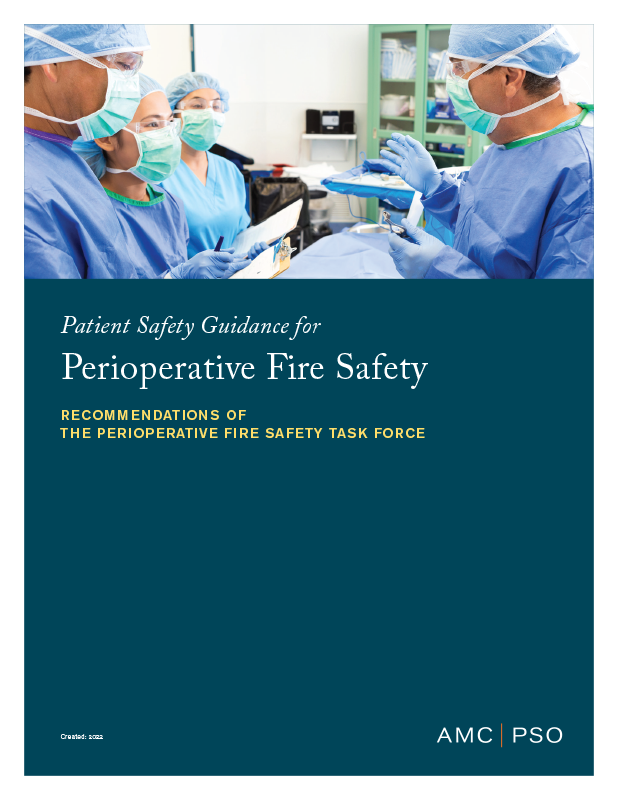Guideline
Patient Safety Guidance for Perioperative Fire Safety


Recommendations of the Perioperative Fire Task Force
Wide variability of fire risk assessment practices exists across professional organizations, health care institutions, services, disciplines within institutions, and individual providers. The Task Force identified and analyzed factors within the fire risk assessment process that potentially could increase the risk of an OR fire. The Task Force also considered factors that could reduce the risk of an OR fire, including elements of the fire risk assessment process that could be standardized to improve reliability.
Statement
These consensus recommendations are for informational purposes only and should not be construed or relied upon as a standard of care. The AMC PSO recommends institutions review these guidelines and accept, modify, or consider alternatives based on their own institutional resources and patient populations. Institutions should review and modify these recommendations as the field continues to evolve.
More AMC PSO Content
Patient Safety Guidance for Pathology Specimens


EHR Downtime Guidelines

Interventional Radiology Guidelines


